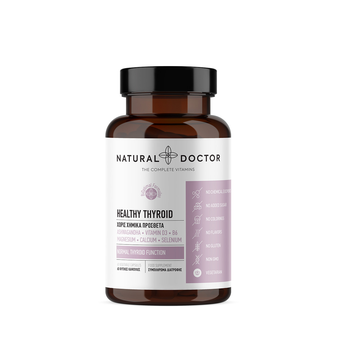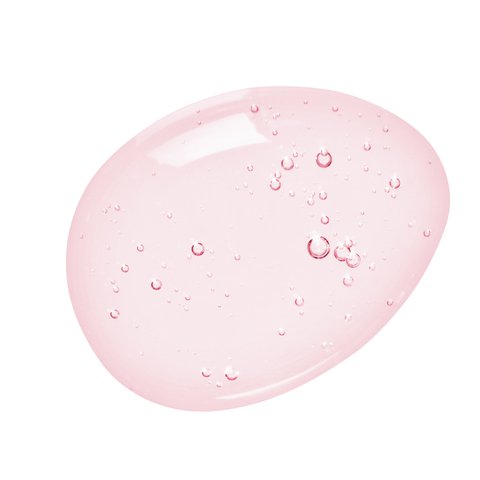Thyroid ,Vitamin D & Selenium deficiency

The thyroid is a butterfly-shaped gland at the front of the neck. It is very lightweight, and its two lobes extend into the trachea, the tube of the respiratory system that carries the air. Its primary function is to produce thyroid hormones, which ultimately regulate the metabolism of carbohydrates, fats and proteins, contributing to energy production.
During this primary process, the thyroid gland also supports the functioning of other tissues and organs in the body, including the liver, brain, heart, kidneys, muscles and skin. Consequently, optimal thyroid function contributes to the overall health of the body.
How does the thyroid gland work?
A multi-step process stimulates the thyroid gland. First, the hypothalamus in the brain produces a thyrotropin-releasing hormone (TRH), which activates the anterior pituitary gland, found in the brain, to create and secrete thyroid-stimulating hormone (TSH). Then TSH stimulates the thyroid gland to produce thyroid hormones.
The thyroid's primary role is to produce two hormones: triiodothyronine (T3) and the prohormone thyroxine (T4), which affect every cell in the body.
T3
T3 is considered the active form of the two thyroid hormones. About 20 per cent of T3 is secreted into the bloodstream directly by the thyroid, while the other 80 per cent of T3 is produced by converting T4 in the kidneys and liver.
T4
T4 is considered the inactive thyroid hormone. The typical thyroid produces about four times more T4 than T3. These hormones, T3 and T4, regulate body temperature, metabolism and heart rate.
Calcitonin
The thyroid gland also creates calcitonin, a hormone that controls the amount of calcium in the blood and prevents it from rising to abnormally high levels. Calcitonin is the classic marker for medullary thyroid carcinoma, while its values are proportionally related to the tumour cell volume.
Signs that the thyroid gland is not functioning properly
While thyroid dysfunction is often not noticed, there are several symptoms associated with it:
- Unintentional weight loss
- Weight gain
- Dry skin
- Fast heartbeat
- Feeling nervous
- Excessive sweating
- Thinning hair
- Difficulty sleeping
- Increased fatigue
- Reduced resistance to cold or heat
- Irregular period
- Swollen eyes
Risk factors for hypothyroidism
Low levels of vitamin D and selenium, lack of iodine, the body's burden from industrial pollutants, which disrupt the hormonal system, and some medications prevent the optimal thyroid functioning. Women over 50 have also an increased risk for thyroid problems. Other risk factors include:
- Family history of thyroid disease or autoimmune disorder
- Personal history of type 1 diabetes or rheumatoid arthritis
- History of taking antithyroid drugs for hyperthyroidism
- Previous thyroid operations
- Radiation to the neck or upper chest
Dietary recommendations
What can keep a thyroid healthy? In addition to diet, exercise and lifestyle, nutrients like the following help boost its function.
Vitamin D and Thyroid
Vitamin D deficiency is a risk factor for developing many thyroid disorders, including autoimmune thyroid diseases and thyroid cancer.
Selenium and Thyroid
Selenium is an essential micronutrient for the synthesis and function of thyroid hormones and overall thyroid health. Selenium works with iodine to activate three different selenium-dependent iodothyronine deiodinases, which can then turn thyroid hormones on or off.
This process, like selenium, is essential for normal growth and metabolism. Selenium deficiency is associated with hypothyroidism, Hashimoto's, thyroid enlargement (goitre), thyroid cancer, and Graves' disease.
Zinc and Thyroid
Zinc is another element needed for the synthesis of thyroid hormones. Zinc is necessary to produce T3, T4 and thyroid-stimulating hormone (TSH). Zinc deficiency can lead to hypothyroidism.
On the other hand, hypothyroidism can lead to zinc deficiency since thyroid hormones are required for zinc absorption. When supplementing with thyroid hormones, taking a zinc supplement is also essential.
Ashwagandha and Thyroid
Ashwagandha is an Ayurvedic herb with many health benefits, as it can help relieve symptoms and increase thyroid hormone levels. In a study, people with hypothyroidism found that taking 600 mg of ashwagandha root extract per day improved thyroid levels compared to taking a placebo.
Vitamin A and thyroid
Vitamin A is essential for several processes, including hormone regulation. While most of us can convert plant provitamin A (beta-carotene) into active vitamin A, those with genetic predispositions are less efficient, making them susceptible to vitamin A deficiency. That can be an underlying cause of thyroid dysfunction.
Alpha lipoic acid and thyroid
Alpha lipoic acid plays a vital role as a cofactor and is essential for ATP production in cells. Its primary role is to serve as an energy supply for almost all biochemical reactions of cells. Alpha lipoic acid also has a strong antioxidant capacity and neutralizes free radicals, which cause cell damage.
That has positive benefits in general but also in conditions such as obesity, diabetes, metabolic syndrome and peripheral neuropathy. Thyroid patients experience several metabolic disorders, such as weight gain and insulin resistance so alpha lipoic acid is an essential nutrient suitable for people with thyroid problems.
Healthy Thyroid
Healthy thyroid contains selenium, which contributes to normal thyroid function, and vitamin B6, which regulates hormonal activity. It also includes nutrients such as ashwagandha, iodine, cinnamon, magnesium, L-tyrosine, L-glutamine, calcium, copper, zinc, α-lipoic acid, vitamins A, C, D3, B12 and vitamin B1.



